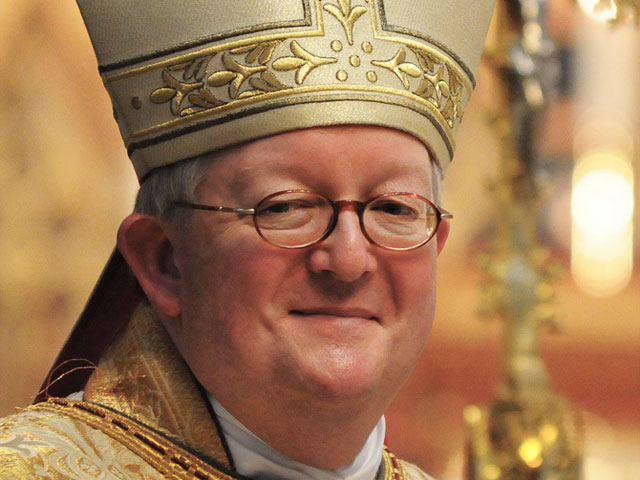Noticing some fair-haired children in the slave market one morning, Pope Gregory, the memorable pope, said (in Latin), “What are those?” and on being told that they were Angels, made the memorable joke — “Non Angli, sed Angeli” (“not Angels, but Anglicans”) and commanded one of his saints called St Augustine to go and convert the rest.
W.C. Sellar and R.J. Yeatman, 1066 and All That (1930)
The Durham Herald-Sun reports on celebrations of a local woman who has been made a saint by the Episcopal Church.
Is that right? Do Episcopalians have their own saints?
No they do not. While the events recounted in the story are correct, the reporter has muddled her terminology, using Catholic language to describe a Protestant phenomenon.
The lede sentence of the story entitled “Pauli Murray celebrated as saint at annual service” states:
The Rev. Pauli Murray, the Durham-raised woman who went on to become the first African-American female Episcopal priest and was made a saint by The Episcopal Church in 2012, was celebrated July 1 at an annual service held at St. Titus’ Episcopal Church in Durham.
The article recounts the sermon given at the service. The details of her life show Murray to have been an exemplary, worthy individual — perhaps even a saint in colloquial language. But the article asserts that she was not that sort of saint but an individual “made a saint” by the Episcopal Church in 2012.
I understand what the reporter is trying to say, but her infelicitous language will confuse all but the most devoted Anglican observer. The Episcopal Church has no power to make her, or anyone a saint. Nor do the Catholics or Orthodox “make” saints — they recognize them, canonize them, but God alone makes them.
Is Pauli Murray a saint? Yes and No.
She is a hero of the church who in 2012 was added to the sanctoral calendar of the Episcopal Church and whose day of commemoration is July 1. The church’s sanctoral calendar in the beginning of the Book of Common Prayer lists the feast days and commemorations of the saints and heroes of the church — but notice only some individuals are called saints: Mary, Joseph, Peter, Paul, Matthias, Bartholomew, Matthew, Michael, Luke, James, Simon, Jude, Andrew, Thomas, Stephen and John.
All others are identified by titles such as priest, missionary or theologian. The only people called saints are New Testament figures. Episcopal Churches are often named after saints from the post-Biblical age (St. Augustine and so forth), and those individuals identified by the universal church as saints are often called saints. But Anglicans have not created their own saints since the Reformation, with but one local and much disputed exception: King Charles I (St. Charles the Martyr).
What is the difference between a hero of the church and a saint? The answer is theological. Blame Calvin for this. The lyrics of the hymn “I Sing a Song of the Saints of God” spells out the Episcopal/Reformed view. Thus, worshippers sing:
I sing a song of the saints of God,
Patient and brave and true,
Who toiled and fought and lived and died
For the Lord they loved and knew.
And one was a doctor, and one was a queen,
And one was a shepherdess on the green;
They were all of them saints of God, and I mean,
God helping, to be one too.They loved their Lord so dear, so dear,
And his love made them strong;
And they followed the right for Jesus’ sake
The whole of their good lives long.
And one was a soldier, and one was a priest,
And one was slain by a fierce wild beast;
And there’s not any reason, no, not the least,
Why I shouldn’t be one too.They lived not only in ages past,
There are hundreds of thousands still.
The world is bright with the joyous saints
Who love to do Jesus’ will.
You can meet them in school, or in lanes, or at sea,
In church, or in trains, or in shops, or at tea;
For the saints of God are just folk like me,
And I mean to be one too.
Written by Lesbia Scott in 1929 and set to the tune “Grand Isle” composed by the Rev. John H. Hopkins, Jr., “I Sing a Song” has long been a favorite within my denomination — Episcopalians and Anglicans can turn to #293 in the 1982 Hymnal — while Methodists, Presbyterians and the U.S. Army hymnals sing along too.
Scott’s hymn teaches the Reformed view that saints were those both of the past and the present — those with God, and those on their way to God through pilgrimage on earth. Calvin drew particular attention to this phrase of the Apostles Creed in Book IV of his Institutes.
Hence the additional expression, the “communion of saints,” for this clause, though usually omitted by ancient writers, must not be overlooked as it admirably expresses the quality of the church; just as if it had been said, that the saints are united in the fellowship of Christ on this condition, that all the blessings which God bestows upon them are mutually communicable to each other.
Or as Scott’s hymn puts it:
For the saints of God are just folk like me,
And I mean to be one too.
This Reformed view differs from the Roman Catholic and Orthodox understanding of saints and is not universally held by all Anglicans (I would be hard pressed however to think of any doctrine held by all Anglicans save for the most important one — Royal Supremacy).
When the Episcopal Church began the process of revising its 1940 hymnal in the mid-70s, objections were lodged by Anglo-Catholics over its low church/Protestant theology. Compilers of the revised hymnal initially omitted the “I Sing a Song” from the new hymnal, but a grass roots campaign of letter writing saw its return. Drop into a normal (one sans labyrinths, sweat lodges and Buddhist chants) Episcopal Church on All Saints Day and chances are you will hear this hymn. If the church has a children’s choir, I can guarantee you will hear it.
This foray into the theology of the communion of saints, Jean Calvin and 20th Century hymnody could have been avoided by using a less loaded word than saint. Pauli Murray is a saint as are all believing Christians — but she is commemorated as a hero of the faith, which is something “folk like me” are not.











